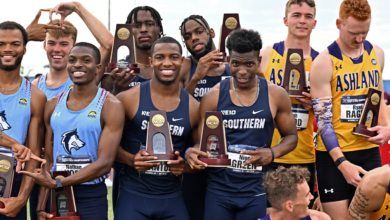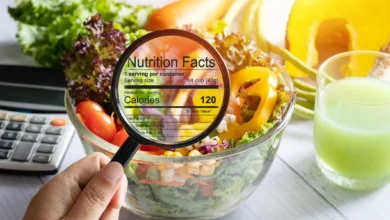Harnessing the Potential of Sports Nutrition

In the world of athletics, achieving peak performance is a multifaceted endeavor that extends beyond rigorous training routines. One of the critical components in unlocking your full potential is sports nutrition. The right fuel can make a significant impact on your endurance, strength, and overall athletic prowess. This blog is a comprehensive guide to harnessing the potential of sports nutrition, providing insights and actionable tips to optimize your performance.
1. Fueling Your Engine:
- Metabolic Demands: Understand the energy requirements of your sport or fitness regimen.
- Balanced Nutrition: Fuel your body with a balanced mix of carbohydrates, proteins, and fats to meet specific energy needs.
2. Strategic Pre-Workout Nutrition:
- Carbohydrate Loading: Consume a carbohydrate-rich meal 3-4 hours before intense training or competition.
- Quick Energy Boost: Consider easily digestible snacks 30-60 minutes pre-exercise for an additional energy boost.
3. Protein Power for Recovery:
- Muscle Repair: Prioritize protein intake post-exercise to facilitate muscle repair and growth.
- Timing Matters: Consume protein-rich snacks or shakes within the first hour after training for optimal recovery.
4. The Role of Carbohydrates:
- Primary Energy Source: Understand that carbohydrates are your body’s primary fuel during high-intensity activities.
- Complex Carbs: Choose complex carbohydrates like whole grains for sustained energy release.
5. Hydration Hygiene:
- Electrolyte Balance: Replenish electrolytes lost through sweat with sports drinks or natural electrolyte sources.
- Consistent Hydration: Maintain consistent hydration throughout the day, not just during workouts.
6. Individualized Nutrition Plans:
- Consult with Experts: Work with a sports nutritionist to create a personalized nutrition plan.
- Considerations: Your plan should align with your sport, training intensity, body composition goals, and dietary preferences.
7. Adaptation to Training Load:
- Caloric Adjustments: Adjust your caloric intake based on the volume and intensity of your training.
- Periodization: Periodize your nutrition to align with different training phases, including rest and recovery.
8. Micronutrient Optimization:
- Vitamins and Minerals: Ensure an adequate intake of essential vitamins and minerals to support overall health.
- Antioxidant-Rich Foods: Incorporate fruits and vegetables into your diet for their antioxidant properties.
9. Recovery Nutrition Essentials:
- Post-Workout Window: Consume a mix of carbohydrates and protein within the first hour after exercise to maximize recovery.
- Whole Foods vs. Supplements: While supplements can be convenient, whole foods should be the primary source of your nutrients.
10. Quality over Quantity:
- Nutrient-Dense Choices: Prioritize nutrient-dense foods over empty-calorie options for sustained energy and health benefits.
- Whole Food Options: Opt for whole foods that offer a spectrum of vitamins, minerals, and antioxidants.
11. Monitoring and Adjusting:
- Performance Evaluation: Regularly assess your energy levels, recovery, and overall performance.
- Flexible Nutrition: Adjust your nutrition plan based on your body’s response, training adaptations, and specific goals.
12. Supplementation Considerations:
- Professional Guidance: Consult with healthcare professionals or a sports nutritionist before incorporating supplements.
- Targeted Supplements: Consider supplements like vitamin D, omega-3 fatty acids, and protein only when necessary and under professional advice.
13. Mindful Eating Practices:
- Conscious Consumption: Practice mindful eating by savoring each bite and paying attention to hunger and fullness cues.
- Avoid Distractions: Minimize distractions during meals to enhance your awareness of food intake.
14. Balancing Rest and Nutrition:
- Sleep Prioritization: Recognize the importance of quality sleep for overall recovery and performance.
- Active Recovery: Incorporate light activities and stretching into your routine on rest days for enhanced recovery.
15. Educational Empowerment:
- Continuous Learning: Stay informed about evolving nutritional science and how it relates to your sport.
- Knowledge Empowers: Understand the reasoning behind your nutritional choices to make informed decisions about your diet.
Conclusion
The potential of sports nutrition is vast, offering athletes a powerful tool to enhance their performance. By implementing these strategies, you can harness the full potential of your body, ensuring that you are not only physically prepared but also nutritionally optimized for success. Remember, sports nutrition is a dynamic and individualized journey, so take the time to experiment, learn, and tailor your approach to what works best for your unique athletic endeavors.




